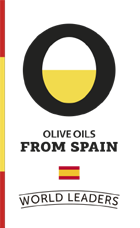
The olive oil sector in Spain disputed at the time, due to a lack of information on the issue, the decision by both the International Olive Council and the European Union of a progressive reduction in the limit on the content of ethyl esters in extra virgin olive oils. It was presupposed that the presence of these compounds was derived from alcoholic fermentation and that it would remain a stable parameter over time.
Thanks to the studies jointly carried out by both National and Andalucia Public Organisations and the olive Interprofessional, it is now known that ethanol, one of the precursors of ethyl esters and its compounds are naturally present in olives. Its presence in the oil depends on various factors, such as the olive variety, how ripe the fruit is at the time of collection and the extraction methods and processes used prior to storage of the product. In addition, these substances are water soluble and given that the olives are washed to a greater or lesser degree in whichever production process is used, this can also affect its levels in oil.
The research attempts to quantify to what extent all these factors affect the presence of these compounds, providing information that will permit a reconsideration of the latest reduction in the parameter limit that is due to be applied under current legislation.
For this reason the evolution of the ethyl esters in storage tanks with EVOO of different varieties and different degrees of maturation and that have been produced and stored under different conditions have been studied.
For the moment a one-year moratorium has been granted in order to provide additional information to the EC and the IOC expert panel.








